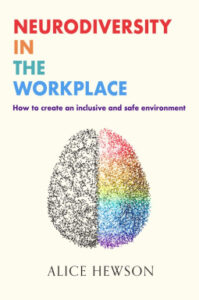An estimated one in seven people in the UK and up to 33% of American adults are neurodivergent, yet 26% of employers said they do not name neurodiversity in their inclusion policies and procedures.
If your organisation has outward-facing messaging that you are an inclusive, supportive place for neurodivergence, people will be attracted by this positive image.
It may result in expanding your network, gaining more customers, successfully bidding for more contracts, developing a reputation for diversity and equity and, eventually, expanding your pool of talent to include neurodivergent skills and expertise on your team.
A staff team with senior managers who prioritise wellbeing and support is a more productive, focused and driven team. And a workplace that prioritises wellbeing is likely to have happier and healthier employees.
Being supported at work results in fewer days off sick and more days dedicated to developing knowledge, learning and understanding. We’ll get more done if given the tools and support to do so. And we’ll get loads done if you play to our strengths and what we can do.
Your time and commitment to learn how to create psychologically safe and brave spaces will generate a wider pool of highly skilled staff and job applicants. Your team will grow.
Most successful teams are diverse. If everyone is the same on a football team or in an orchestra, with identical skills and abilities, we a) wouldn’t win any football matches, and b) would struggle to have an orchestra full of variety, different sounds, textures and instruments. We can’t all play fiddle. Drummers are needed too and, dare I say it, banjo players. (I’m amazed I’ve managed to get a banjo joke into a book about neurodiversity.)
Teams need and thrive off difference. What employer wouldn’t want to utilise the skills and talents that all of society has to offer?
Alice Hewson is a journalist and youth worker. Read her piece for Community Living on what employers need to do to create more inclusive workplaces





